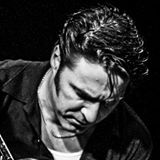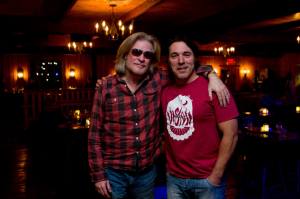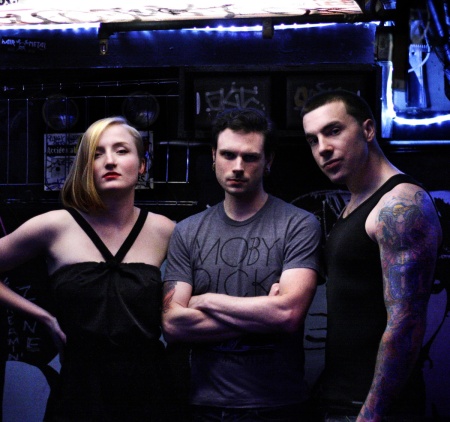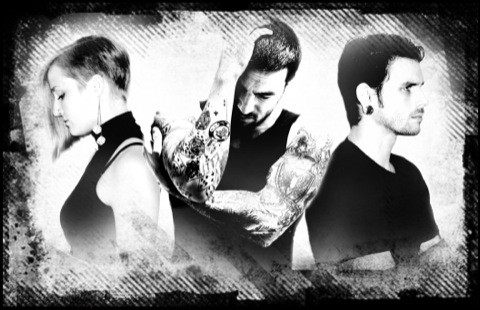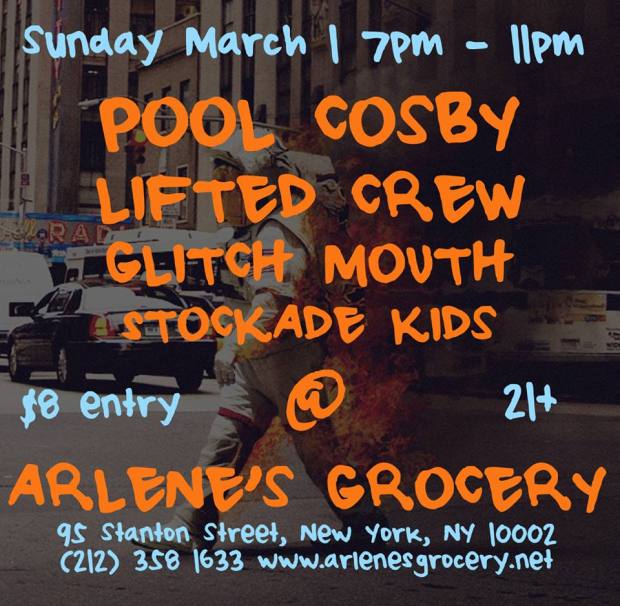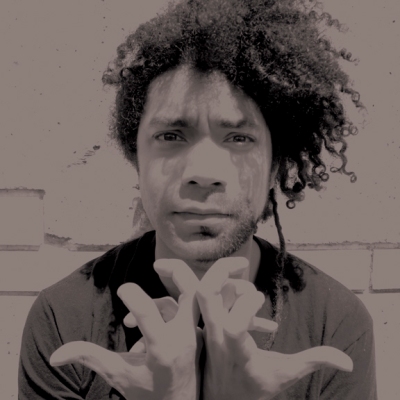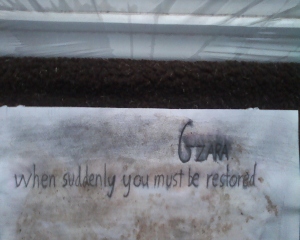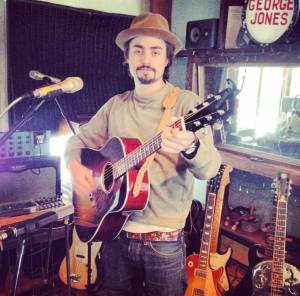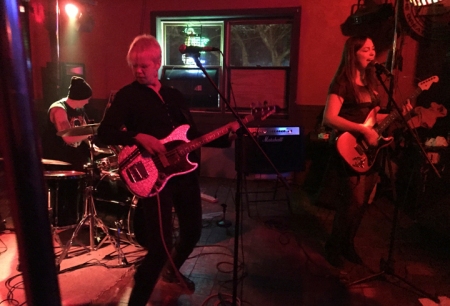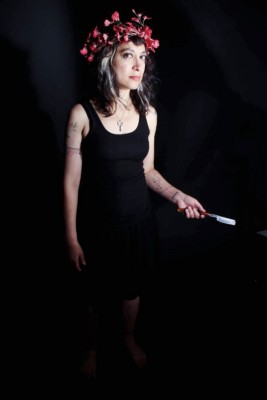 Photo: Chris Carlone
Photo: Chris Carlone
By: Lys Guillorn
Last year at this time I interviewed Peter Riccio of The Sawtelles, my former Jargon Society bandmate and current member of my band, for my Lonesome Noise Summer Residency, so this year I decided to interview my other co-conspirator in that endeavor.
Elisa Flynn and I began playing music together in 1999, and co-formed Jargon Society in 2000, both playing guitar and singing, adding cellist Megan Luke and fellow songwriter Peter Riccio on drums. Three songwriters and harmonies, two jangly guitars, hypnotic cello, and expressive drums tailored in service of each song.
Jargon Society disbanded in the autumn of 2001, not too long after Elisa had moved to New York City. Over the fourteen years since then, Elisa has transformed her powerful punk caterwaul into a soaring and highly controlled instrument. She has studied voice with Shara Worden of My Brightest Diamond, and she mandolin with Mark Rogers of Mark Rogers and Mary Byrne.
At a show we recently played at Never Ending Books in New Haven, Elisa whipped out one of the tunes she used to play with her mid-90s band Freak Baby and then Jargon Society. Peter Riccio was compelled to say, “no one plays like you in that era of you.”
In addition to writing and playing, Elisa has hosted quarterly shows at the Way Station in Brooklyn under the moniker Tripeg Lobo Presents. She chooses a topic for each event, and songwriters are challenged to perform a cover and an original on that theme. One of the murder ballad-themed evenings featured her take on the tune Henry Lee.
Her song, “My Henry Lee” leads an EP of the same name, which will be released on September 25, 2015 on her own Cat in a Dress Records, available via Bandcamp. The recordings were engineered by Peter Riccio at Sawtelle House in Southington, CT and then finished and mixed with Ethan Donaldson at Amphibious Tricycle in Brooklyn.
The six songs on the EP are fully-imagined worlds. I have long admired Elisa’s ability to get inside the heads of her characters, both fictional and real. Elisa wields her voice like a righteous sword over the delicately balanced fingerpicked guitar and banjo with touches of keyboards. No loud electric guitars here, but she doesn’t need them to get her message across.
***
“My Henry Lee” © Elisa Flynn, video by Chris Carlone, Chris Carlone Creation
LG: Over what period of time did you make the record here in CT? What was it like working with someone you know very well?
EF: We started working in the first half of 2014, as Peter Riccio was starting to set up his home studio in he and Julie’s new digs. I went up to Southington once every few months and did another couple of songs. I think we did it over about a 6-month period, with the later sessions starting to sound a bit better as the studio set up improved and Peter got used to recording in that room. We did sessions where I just looked out the window the whole day, and one where I sang into the closet!
Driving up to Southington from Brooklyn on a weekend morning is a bit of a pain, traffic is always hell, plus work and life get in the way, so that’s why it took so long. Then I brought it to my friend Ethan Donaldson in Brooklyn to mix.
It was really fun working with Peter. We’ve been friends for about 23 or 24 years, and we’ve been in bands together, played shows together. He’s very easy going and has a really odd sense of humor so we always had a good time!
LG: As someone who is very active writer, how did you go about choosing which of the songs you’ve written since 19th Century Songs to record?
EF: It was just me choosing the ones I was the most interested in when the sessions started. I have older songs I’ve never gotten around to recording, and hope to do some day, but the tracks on this recording are just what were interesting to me at the time and what I considered my current best set at the time. Now it’s a year later and it’s morphed a little, but I play them all a lot still.
LG: Was “My Henry Lee” written before you decided to do a murder ballad-themed Tripeg Lobo or after?
EF: It was written just before, but it was pretty shiny and new when we did that show. I’m still in love with murder ballads, I want to write more, but currently the state of all things gun in this country make it almost too painful to do.
LG: You inhabit some pretty singular characters in your songs—the protagonist of “My Henry Lee”, for example—she’s talkin’ some serious business. These aren’t necessarily people one would encounter in daily life. It’s not that you don’t write personal songs—you do write songs inspired by people and events of your life, but they definitely end up more story-like. What draws you to the characters you write about?
EF: I definitely write about strong characters, and often I use first person narration. Sometimes they’re based on characters in books, or from the news, or from paintings. On this EP, there’s only one song drawing on my own life experience—”Cheetah”—and it’s a super personal song that it took me a while to get the courage to play out, and a really long time to not feel uncomfortable about. I’ve been playing it for over 2 years or so, and honestly, I think the first time I really felt comfortable playing it for people was at a show last week! One person in the audience said it made her get choked up; that’s a very humbling thing to me, when someone has that reaction. It’s about how I thought I could speak in tongues for a short time when I was about 13, I think, and I had a brief sort of mystical religious period. “My Blood” is about the war in Afghanistan, and I wrote it after watching Restrepo, which I thought was a fantastic, very personal movie, and I wanted to try and convey the experience of a soldier the same sort of way that Sebastian Junger and Tim Hetherington did.
LG: What kind of mutations do your songs go through as you’re writing them—is there a lot of revision?
EF: I keep several notebooks, and I always have a small one I jot quick ideas in. Then there’s a formal music notebook that songs get fleshed out and finalized in. Sometimes I write most of a song in one go, but sometimes it’s a few verses then lots of throwing ideas down until I find what the rest of the song needs to say. I revise a lot, and I really sweat how things sound together. My greatest fear is of writing a cliché of any kind.
Occasionally, I will use a line from a book or poem as a starting point, and I do have one song about 1960’s land artist Robert Smithson that is based on an interview he did. I often write lyrics while listening to music, but the lyrics I am writing have nothing to do with what I’m listening to, except in the case of this one song I haven’t yet recorded called “All Hail West TX,” which has nothing to do with that album, but it came out of me while I was listening to it.
LG: What were some of the books you were reading that inspired this group of songs?
EF: Actually, only one song in this group was written after reading a book—”A House Called Merciful,” which is something Will Oldham says to Alan Licht in Will Oldham on Bonny Prince Billy, a book of conversations between Oldham and Licht. The other songs come from movies and paintings and the traditional murder ballad story for the title track. “2 Horse Race” is based on a woodcut by Antonio Frasconi, “Keeper of Secrets”is based on a Marc Chagall painting.
LG: What have you read recently?
EF: The book I just finished was The Rise & Fall of Great Powers, by Tom Rachman, which I loved, which has a great female protagonist, who is basically dragged all over the world as a child and taught to be a grifter by this group of people who take care of her. Just before that I read Not My Father’s Son, by Alan Cumming and My Struggle, Book One, by Karl Ove Knausgaard. I’m still deciding how I feel about Knausgaard.
LG: “House Called Merciful” is the first song in your recording career to feature banjo. The part has an almost classical feel. What was it like beginning to write for banjo?
EF: It was so much fun. I’m writing kind of slowly on banjo, because I really don’t know “how” to play it, but I love it. I love the percussive quality and the different tuning. Someone said I play gamelan banjo—think that’s a good description!
“Keeper of Secrets” reminds me of your dream-inspired woodcuts, and of some of your Jargon Society-era writing. This is the one about Marc Chagall’s paintings, right? [I hope I’m right!] Was there one painting you had in mind or a few? I’m picturing “Over the Town”, “A Bandura Player, a Bear and Zemphira.”
I was reading a book on him, so I was thinking of multiple paintings, but “Over the Town” is a good starting point. And I had a very distinct picture in my mind that I created by looking at his paintings, of this man/bear on his ledge.
LG: Kind of related to what Peter said about “My Pet Pig” and your playing in Jargon Society—do you ever miss sawing away at an electric guitar in a loud band?
EF: On occasion I do. My hearing was starting to take a beating after playing loudly for so many years, and I just found myself naturally playing quieter more of the time. I have a few louder songs still. I find it much more of a challenge to play quietly and let the song soak into the space rather that blanket everything immediately with volume. And it brings vocals much more to the fore when you’re quieter, and that’s what i try to explore more than anything, is singing and the voice as instrument.
LG: What are you obsessively listening to at the moment? How about while driving back and forth to CT to make the record—was there a particular sound lording over your ears?
EF: I have been listening to a fuck ton of Tom Brousseau and John Vanderslice lately. I’m also really into Godspeed You! Black Emperor.at the moment. I go through phases. I think when we were recording I was listening to a lot of Bill Callahan, Nick Cave and Low.
LG: How was the Mercury Lounge show on Sept. 1? That’s a bit of a milestone show!
EF: The show was great. The Mercury has really great sound; everyone there said I sounded the best I ever have, and that was without a soundcheck. Good to know! I want to go back!
LG: Are there any EP release shows planned?
EF: I’m doing a show at Troost [Brooklyn, NY] on 9/17, which isn’t really an official release show; it’s a pre-release show! I’m trying to organize some, in and out of town.
***
For more information:
Elisa Flynn’s website
Elisa Flynn’s Bandcamp
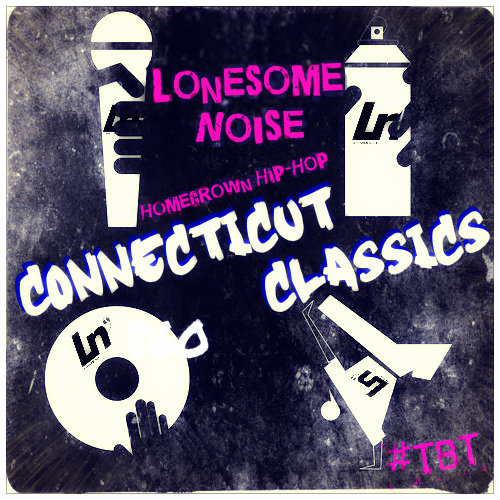
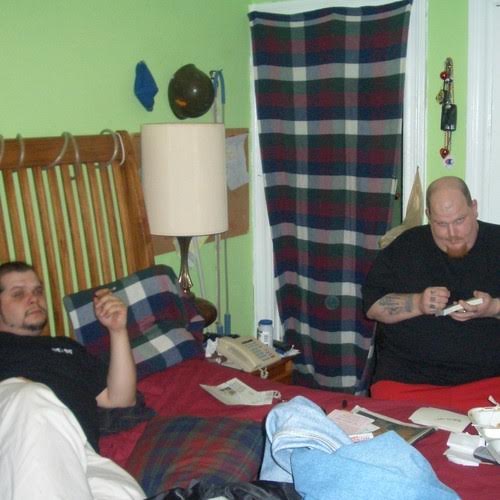
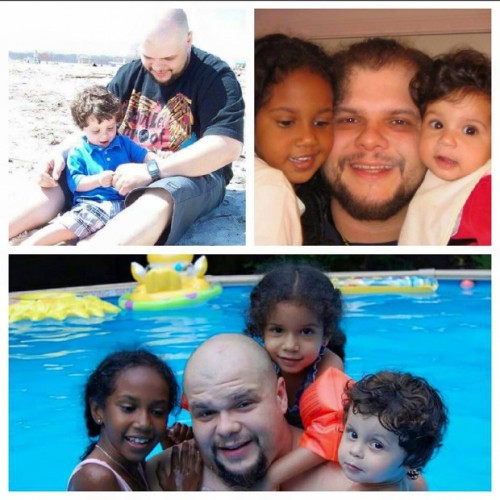
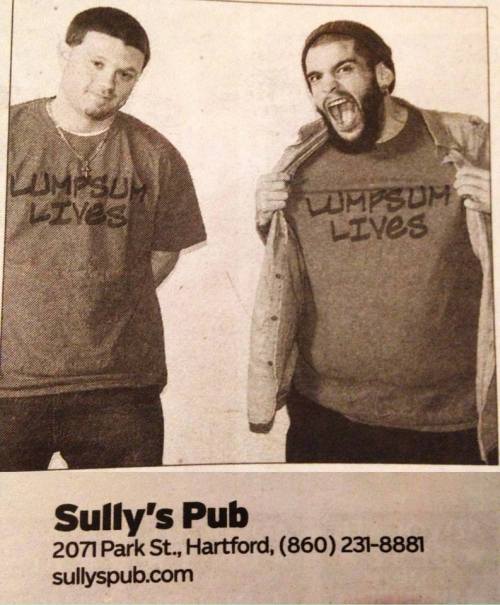

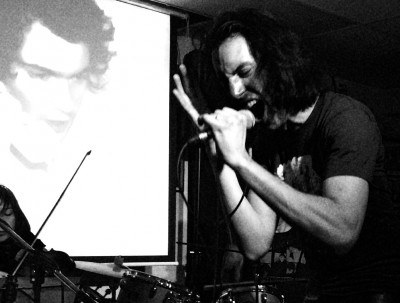
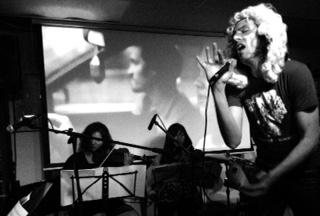
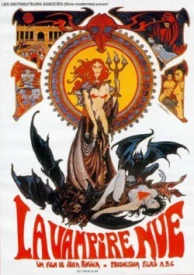
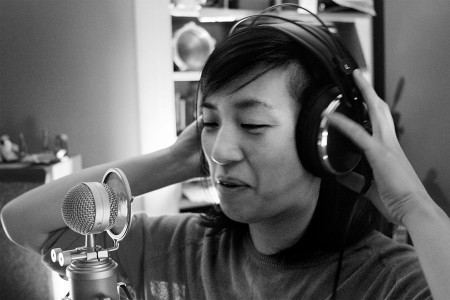
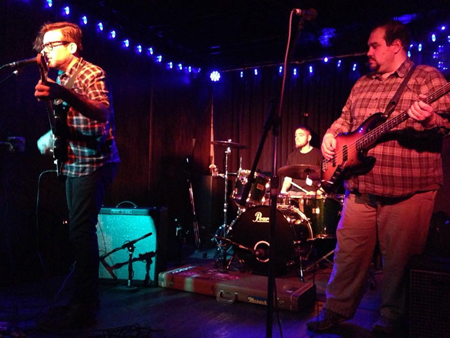
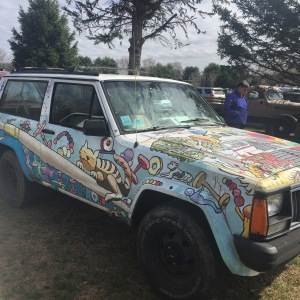
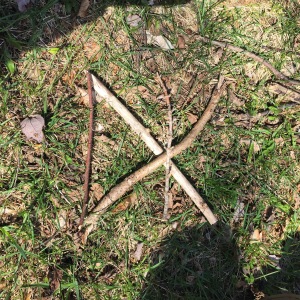 We decided to “pull over” and sit on the grass for a bit.
We decided to “pull over” and sit on the grass for a bit.